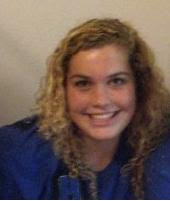
Friday, December 18, 2009
Monday, December 14, 2009
ad examples 12/14/09
1. it targets Tiger Wood fans
2.The photgraph advertises Nike, and if you like Tiger, you'll be persuaded to buy Nike.
3. The outer part of the photograph is darker which lights up the subject.
2. This isnt really a product, but it persuades you to donate to the charity.
3. The yellow part of his jersey is lit up and that says LIVESTRONG
2. This is to show you that it will keep you hydrated
3. All the photo is in black and white except for the gatorade itself.
Friday, December 11, 2009
Tuesday, December 8, 2009
Monday, December 7, 2009
stillness and movement in photos 12/7/09
This picture was shot at a high ISO and a semi fast shutter speed. The skirt is blurred but the face is in focus and sharp.
Thursday, December 3, 2009
Wednesday, December 2, 2009
Tuesday, December 1, 2009
Monday, November 30, 2009
Photo Critique 11/30

This picture uses many elements that we've discussed in class such as: depth of field, rule of thirds, lighting, texture, and perspective. The main subject (the police man) is focused on and everything else is blurred out. This places emphasis on the subject and allows you to get the full effect of the photograph.
Thursday, November 19, 2009
Wednesday, November 18, 2009
Review- Defining 11/18
1. Line- Line can create textures and pattern in your photograph. The bring emphasis on the subject and make your photo more defined.
2. Texture- Textures in your photograph create patterns. They bring out the subject more and define exactly what the photo is trying to capture
3. Complimentary Colors- Comp. colors make each color become more evidet. They are across from eachother on the color wheel.
4. Leading Line- Leading lines make you focus exactly on your subject. The lines lead up to the subject and therefor you know exactly what your trying to focus on.
5. Pattern- Patterns are repeated items in your photograph. They make for emphasis on the subject.
6. Shooting from the Hip- shooting without really looking what your shooting at. It's basically shooting blindly.
7. Rule of Thirds- It basically divides your picture into rows and columns of threes. Your subject should be placed at the line of intersection of the columns and rows.
8. Motion (freeze action)- When your freezing action in your photograph you are shooting on a fast shutter speed. Your are capturing movement without showing the path of motion.
9. Motion (path of motion)- Shoot on a slow shuterspeed to capture the movement. Your subject's movement will be kinda blurry.
10. Depth of Field (more)- All of your picture is in focus. You use a big fstop number and the actual aperture hole is small.
11. Depth of Field (less)- Only part of your picture is in focus. The aperture hole is big and the fstop is small.
12. Exposure Bracketing- Shooting three different photo's at different exposures to find the correct exposure and not be under or over.
13. Perspective- shooting your subject at different angles to capture things that you dont normally see.
14. Small jpeg- shooting when you are going to be uploading a lot of photos and when you want to take up the less amount of space
15. Large jpeg- when you are going to be printing out a large poster sized picture.
2. Texture- Textures in your photograph create patterns. They bring out the subject more and define exactly what the photo is trying to capture
3. Complimentary Colors- Comp. colors make each color become more evidet. They are across from eachother on the color wheel.
4. Leading Line- Leading lines make you focus exactly on your subject. The lines lead up to the subject and therefor you know exactly what your trying to focus on.
5. Pattern- Patterns are repeated items in your photograph. They make for emphasis on the subject.
6. Shooting from the Hip- shooting without really looking what your shooting at. It's basically shooting blindly.
7. Rule of Thirds- It basically divides your picture into rows and columns of threes. Your subject should be placed at the line of intersection of the columns and rows.
8. Motion (freeze action)- When your freezing action in your photograph you are shooting on a fast shutter speed. Your are capturing movement without showing the path of motion.
9. Motion (path of motion)- Shoot on a slow shuterspeed to capture the movement. Your subject's movement will be kinda blurry.
10. Depth of Field (more)- All of your picture is in focus. You use a big fstop number and the actual aperture hole is small.
11. Depth of Field (less)- Only part of your picture is in focus. The aperture hole is big and the fstop is small.
12. Exposure Bracketing- Shooting three different photo's at different exposures to find the correct exposure and not be under or over.
13. Perspective- shooting your subject at different angles to capture things that you dont normally see.
14. Small jpeg- shooting when you are going to be uploading a lot of photos and when you want to take up the less amount of space
15. Large jpeg- when you are going to be printing out a large poster sized picture.
Tuesday, November 17, 2009
Subscribe to:
Posts (Atom)































 Large jpeg
Large jpeg





 Depth of field (less)
Depth of field (less) Depth Of Field (more)
Depth Of Field (more)
 fast motion
fast motion
 Shooting from the hip
Shooting from the hip Line
Line

 Pattern
Pattern Complimentary Colors
Complimentary Colors